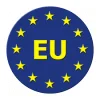

This guidance is about placing manufactured goods on the EU internal market. There’s different guidance if you’re placing manufactured goods on the UK market.
The European Commission has also produced guidance on placing manufactured goods on the EU internal market:
What you will need to do after EU Exit will depend on whether your goods are:
- regulated under the new approach
- regulated under the old approach
- non-harmonised goods subject to national regulation
New approach goods
Goods are ‘placed on the market’ when they are made available on the market for the first time.
All goods placed on the EU internal market after we leave the EU will need to conform with EU goods regulations.
If you have already placed a good on the market in an EU country, other than the UK, before the UK leaves the EU then it can continue circulating after Brexit.
Essential requirements
When we leave the EU the essential requirements (the legal requirements that must be met before a good can be placed on the market) applying to goods placed on the EU internal market will not change.
Conformity assessment
Goods must undergo ‘conformity assessment’ to make sure that they comply with the essential requirements. External notified bodies assess whether some goods, including lifts and pyrotechnics, conform whereas the manufacturer can ‘self-declare’ others, such as toys.
Goods requiring conformity assessment by a notified body
After the UK leaves the EU the results of conformity assessment carried out by UK conformity assessment bodies will no longer be recognized in the EU. This is the case even if the assessment was carried out before the UK leaves the EU.
If you are placing a good on the market after the UK leaves the EU you will need to use an EU-recognised conformity assessment body.
If your goods were assessed by a UK-based notified body, then you could arrange for them to be reassessed by an EU-recognised conformity assessment body before placing on the EU internal market. You can find a list of EU-recognised bodies on the NANDO database.
Alternatively, you could arrange for the files to be transferred to an EU recognised body before the UK leaves the EU.
All products where third-party assessment is required would need to be re-marked with the new EU recognised notified body’s 4-digit number.
Self-declaration
You will still be able to use CE marking based on self-declaration of conformity when you are placing goods on the EU internal market.
The roles of economic operators
Some economic operators will get new legal responsibilities after Brexit.
Importers and distributors
Products from the UK placed on the EU internal market after the UK leaves the EU will be considered imports into the EU internal market.
If you bring products into the UK from a third country for the purposes of placing them on the market, then you are currently an importer. After the UK leaves the EU you will no longer be an importer for the purposes of EU law. If you continue to place goods on the UK market after bringing them in from a third country, then you will be considered an importer for the purposes of UK law. There’s separate guidance on placing manufactured goods on the UK market which provides more detail on this.
If you export products to the EU internal market after the UK leaves the EU then they will need to be labelled with the details of an importer based in the EU or EEA. Products that have a label specifying a UK company as the importer of that product will not be permitted to be placed on the EU internal market after we leave the EU, even if the label was applied before Exit day.
Manufacturers
If you are a manufacturer, your legal obligations will remain mostly unchanged after the UK leaves the EU.
Authorised representatives
After the UK leaves the EU, UK-based authorised representatives (‘responsible persons’) will no longer be recognised by the EU. If you use a UK-based authorised representative to place goods on the EU internal market you will need to arrange an authorised representative based in the EU, EEA or Switzerland. This is the case even if the good was placed on the market before Exit day.
Non-harmonised goods
In the EU, non-harmonised goods are subject to the ‘mutual recognition principle’. This is the principle of EU law under which EU countries must allow goods that are legally sold in another EU country to be sold in their own territory. After the UK leaves the EU the mutual recognition principle will not apply to UK non-harmonised goods placed on the EU internal market.
If you export non-harmonised goods to the EU or EEA after the UK leaves the EU you will need to make sure they meet the national requirements of the first EU country they are exported to.
If you have already placed a non-harmonised good on the EU market, which meets the relevant national requirements, you will not need to take any action.
You can find information about different national regulations of non-harmonised goods for EU countries through the product contact points.
Old approach goods
Old approach goods are subject to detailed regulatory requirements and approvals by public bodies. The relevant regulators have produced detailed guidance on goods subject to the old approach so you should check the guidance on:
Chemicals
- Health and Safety Executive guidance
- European Commission preparedness notice on chemicals regulation
Medicines
- Department of Health and Social Care guidance
- European Commission preparedness notice on medicines
- European Commission Q&A on medicines
Automotive
- Vehicle Certification Agency guidance
- European Commission preparedness notice on type approvals (automotive vehicles)
- European Commission preparedness notice on type approvals (vehicles and engines)
- European Commission Q&A on type approvals
Aerospace
- Civil Aviation Authority guidance
- European Commission preparedness notice on aviation safety
More information about “placing on the market”
360Compliance provides Testing & Certification for type approval services and global market access in 195 countries. With proven expertise in worldwide regulations, 360Compliance can help your company shorten time to any market, minimize risks and manage the regulatory process from A-Z.
Contact us at contact@dev.lm-studio.co.il/360
You may also be interested





